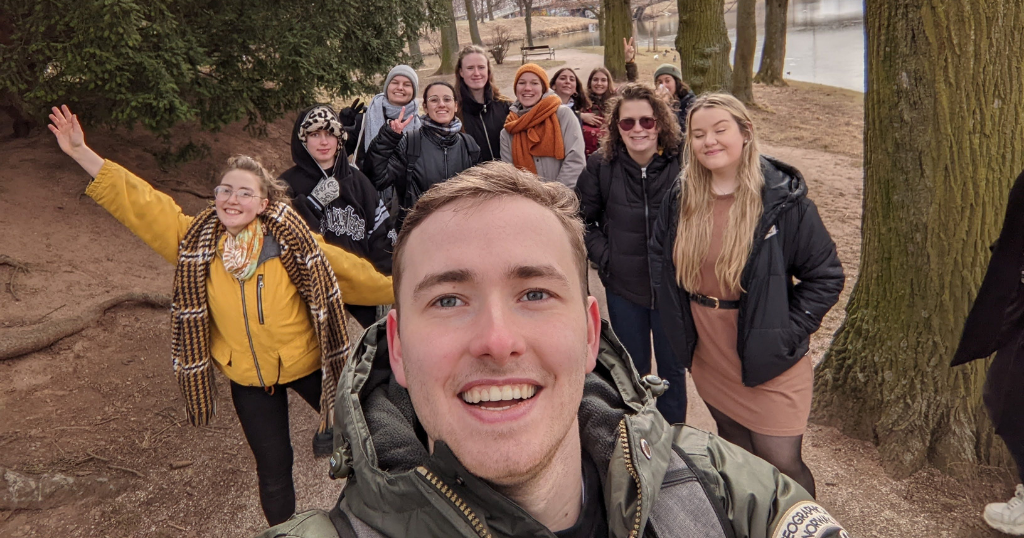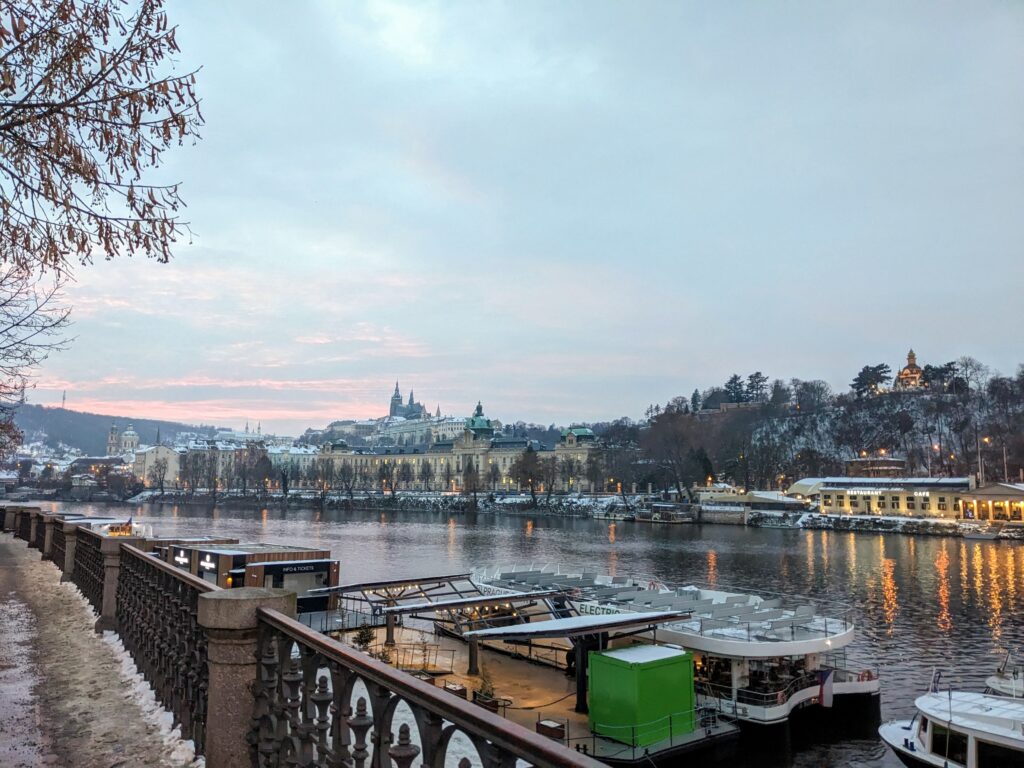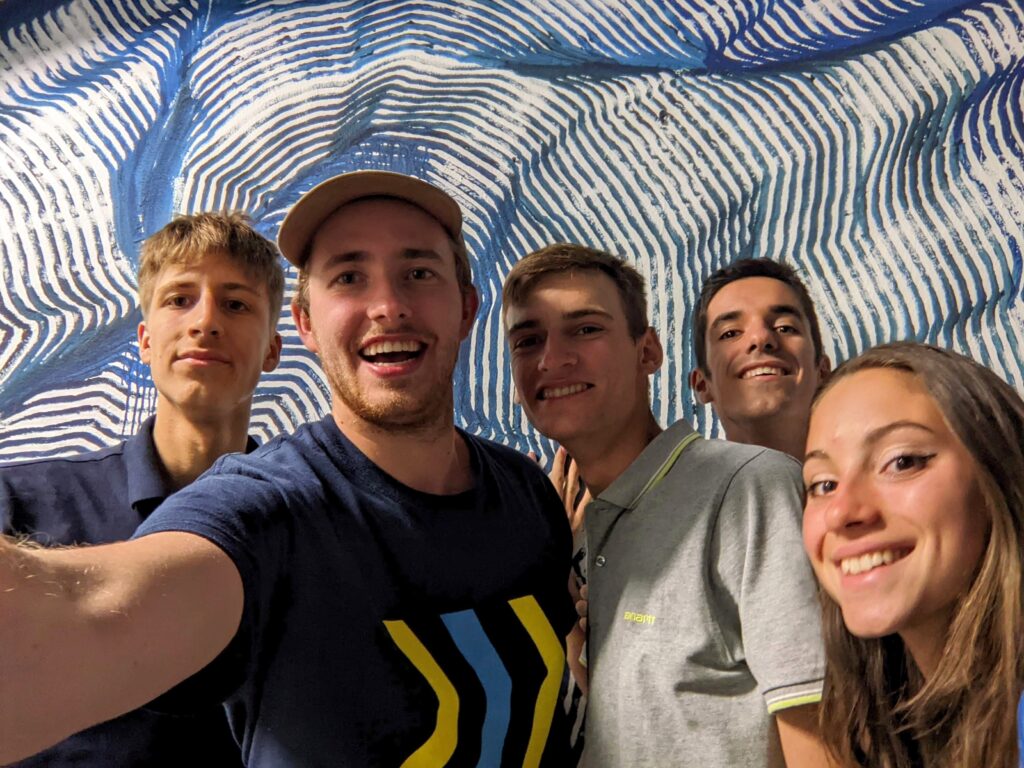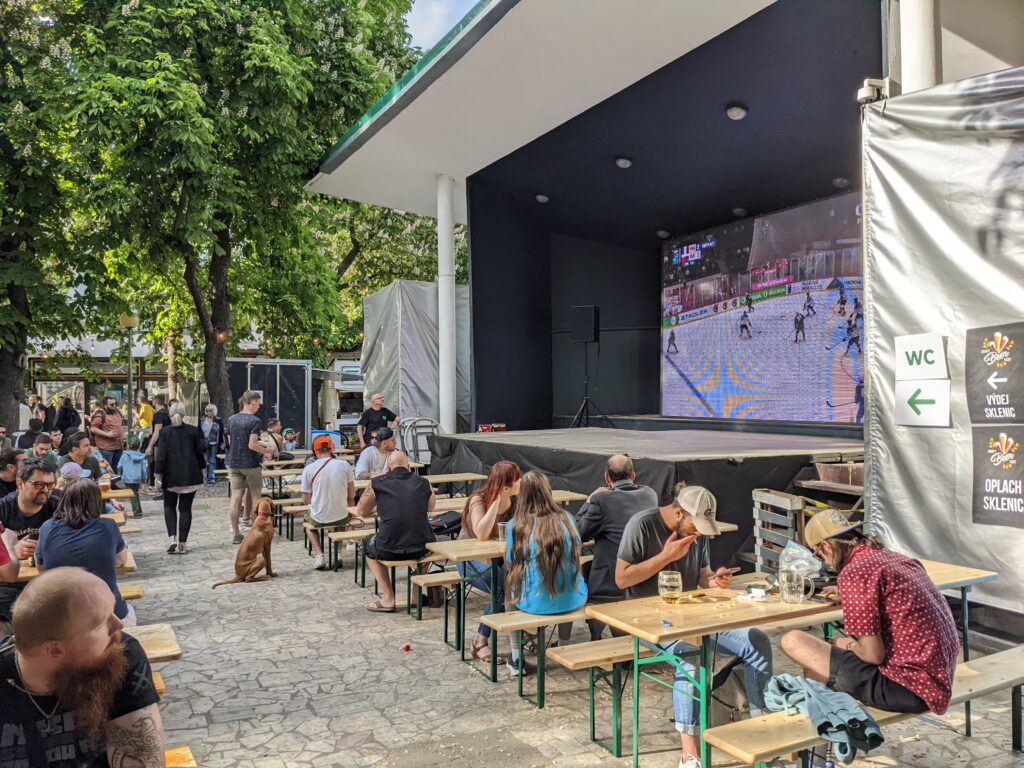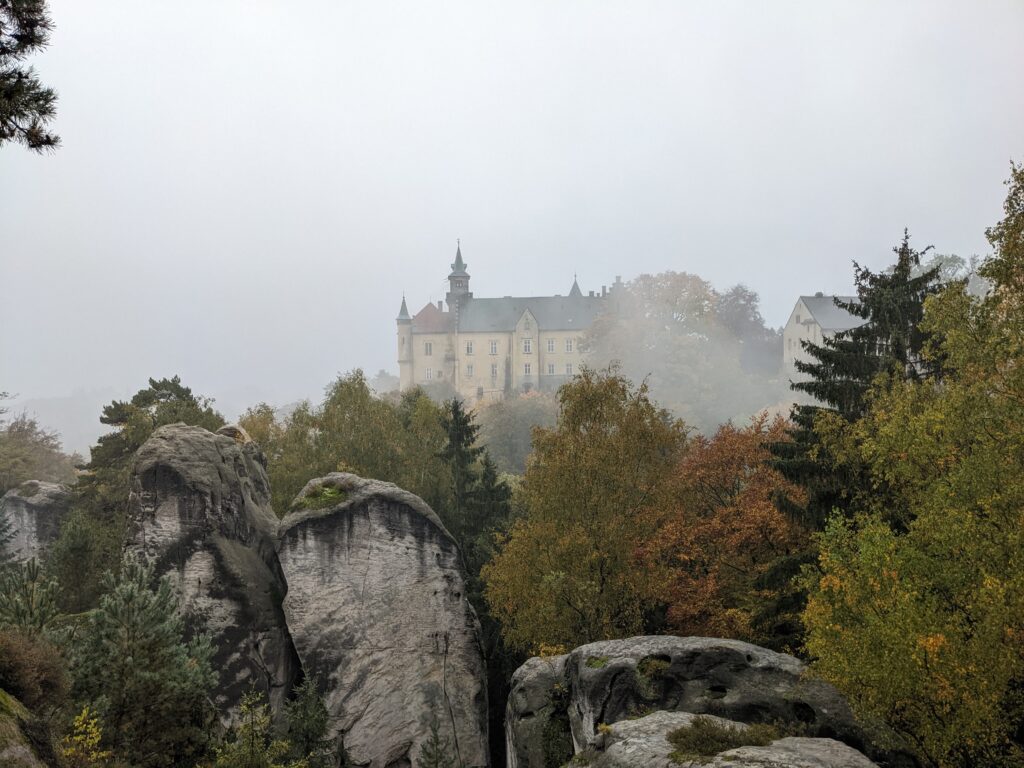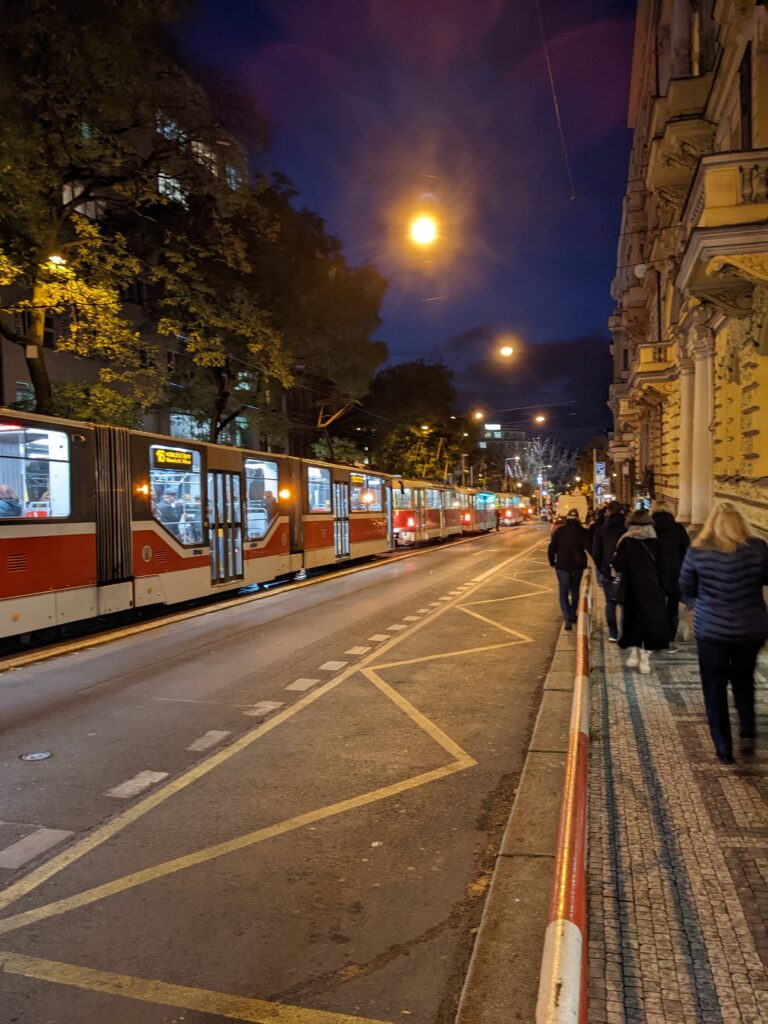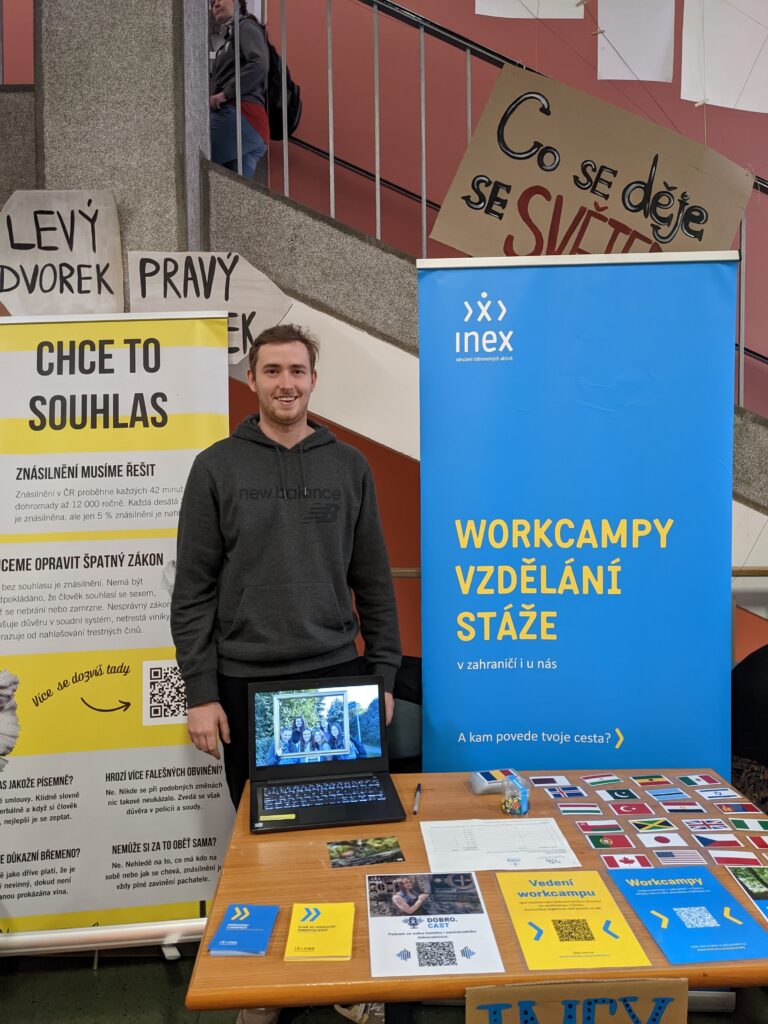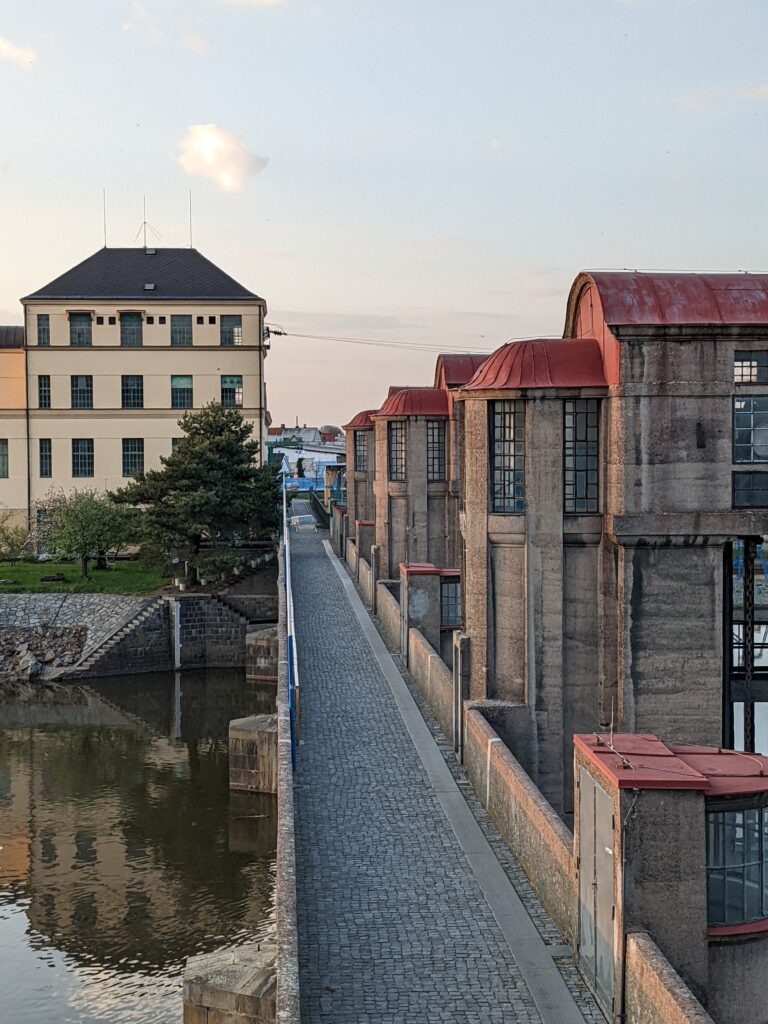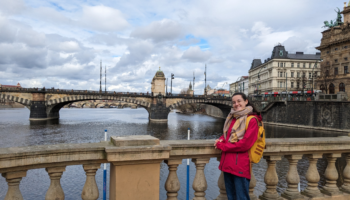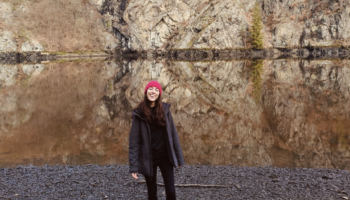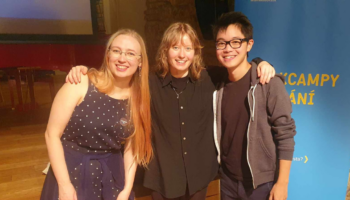This is why I am following the INEX tradition of writing an article to wrap up this amazing year.
In this article I will reflect on my adventure as a member of the European solidarity corps, and share how it affected me.
Why did I decide to join “the corps”?
Before joining INEX, I was finishing my master’s degree in Belgium. At the time some COVID regulations were still in place but they were being lifted one after the other. Seeing this made me realize that it was possible to live again and more importantly to go abroad.
During the final year of my studies I was meant to go on an Erasmus in Northern Ireland, I actually was one of the last people who could go on an Erasmus in the UK before it was retrieved from the programme. I was really excited about it as I wanted to live abroad for some time while I was young. Unfortunately it got cancelled because of the pandemic, leaving me with a bitter taste.
The reason why I wanted to go abroad so bad was because I have one regret from my student years. I did not meet enough people and stayed within the same group of friends that I already had in highschool.
I also was not feeling fully ready to start an active life by getting a job and felt like I needed to experience something more. So I remembered a volunteering project I had in Luxembourg and how cool it was and thought that I would see myself jumping in a similar project but for a longer period.
At the time, I was following a YouTube channel called “yes theory” which was and still is a source of inspiration. Their motto is “seek discomfort” meaning that in order to grow you have to put yourself in situations where you are uncomfortable. To me, going abroad in a foreign country without knowing anyone for a year is definitely a good way to find this discomfort. And I have to say that I really feel like that so far in my life this year was the one where I felt like I grew the most.
How does the ESC works?
If you never heard of the European Solidarity Corps, here is a crash course.
ESC runs under the European commission and its focus is on international volunteering. This program is for young people aged between 18 and 30 living in a EU country or a neighboring country which is part of the programme. A project can last a maximum of 1 year.
There is a database, where NGOs from all over Europe advertise their offers. Once you applied for a project and that you got selected, you need to find a sending organisation that will support you by organising the project. You volunteer for a maximum of 35h per week, but it can be less depending on your volunteering agreement. In exchange for volunteering you receive a flat, food allowance pocket money and the travel tickets to reach and leave your project are reimbursed. Do not expect to profit from the money you receive, the idea is to enable the volunteer to live without using his/her own savings.
Your hosting organisation is also in charge of providing you with a mentor that will support you. You also have access to a European language learning website. During your stay the local national agency organises two trainings called “on arrival training” and “midterm training” where you will be able to meet fellow volunteers and where trainers will give you tips and tricks on how to take away as much as possible from this experience.
Those are the most important info about the European Solidarity Corps.
My first steps into the year
After my first month spent here, I was asked to write an article to describe my impressions.
For this reflection exercise I went through it again. At the time my expectations were basic. I wanted to keep meeting fellow volunteers, being able to handle the “hot period”, and improve my Czech skills.
Looking back on those goals, I am happy to say that I managed to fulfil them. Indeed I never met so many people from all over the world. I survived the exhausting volunteering season and I managed to reach a beginner level of Czech.
Everything that took place during the year
Sometimes you get carried away in a project and you actually do not fully realise what is going on around you. So in this article I wanted to list the most important thing that took place during this year.
February : Start of the project. Placement officer training and on arrival training
March : Preparation of the volunteering season
April : Preparation of the volunteering season
May : Training to become a campleader
June : Mid term Training + Hot season (or a workcamps season – meaning the time when Czech workcamps happen)
July : Hot season + Campleading for the first time + Snezka ascension
August : Hot season + campleading for the second and third time
September : Vacations
October : Statistics after season
November : Preparation of the celebration of volunteering
December : Business trip to Portugal and International volunteers day celebration (MDD)
January : Preparing for the next ESC volunteer + mastering the Czech language and receiving a handshake from the president for being the first foreigner to do so.
(I might have invented the second part of January)
Building a home
I remember thinking one night in my bed what am I doing here? I was far from everything I knew, and did not catch a word of the local language. I was feeling like a penguin in the sahara, I had nothing to do here.
But weeks after weeks, after countless hours spent wandering in Prague, exploring Czech hiking paths, devouring the local cuisine, learning the basics of the language I was feeling more and more at home.
Some signs were also showing that I was more and more belonging to the place. I distinctly remember going to the local Indian restaurant where we often get lunch with the team, but this time alone. The owner recognised me, and asked me where my colleagues were. This might sound stupid, but it was an important moment for me, I was officially a “štamgast” somewhere and it meant something to me.
I was also religiously following a YouTube channel where a local is showing the best spots in the city. I did as many of his recommendations as possible, and everytime it was a banger. Maybe, after all, all influencers are not that useless. I became such a fan of the channel that whenever I am walking in Prague, I am still scanning the streets to hope to recognize this local guide and take a picture with him.
The key turning point was, when I received visits from family and friends I was able to show them “my city” and to take them to the place I usually go to, my favourite spots as well as telling them stories and anecdotes about those places. Then I knew for sure that I was now officially home. In addition, I also know every metro lane. By now I know every metro line by heart.
The ups and downs
As anyone who goes abroad for a long period you will inevitably experience ups and downs. I am someone who thrives on changes and can easily get bored when a routine is created. I constantly need to try new activities, taste different food and so on.
So for me at the beginning everything was up, as there was a whole new city, culture and people to discover. This phase can be compared to the beginning of a romantic relationship, that is often referred to as the “honeymoon phase”. You typically only see the good side of everything and minimise the negative points.
But this phase is not lasting forever, and after some point you realise that you miss people and atmosphere from home. In September, I got back home after 8 months. My first meal was fries. I still remember the pleasure I got from eating this food that I was craving for so long.
When you start to feel home sick, you can do simple things to feel better. Video calls are a good way to stay in contact with home and get regular news about everything that goes on. Another cheeky way I found was to get belgian beer in Prague, every once in a while. To this regard, I am lucky because Czechia has a strong beer culture and even if almost all the beers they drink are national brands it is pretty easy to find international beers in specialised shops or pubs. Since I also enjoy cooking, I was recreating the recipes I used to eat while growing up. Sometimes one ingredient is missing so you have to get creative but you can always replace them. I also enjoyed discovering Czech cuisine and sometimes went a bit crazy by mixing Belgian style of cooking and Czech ones.
There are two episodes I remember that really did not go unnoticed, once during the summer we were having a barbecue with my flatmates and I was grilling some local sausages called “Buřt”, that I naturally included in a baguette to eat it with some sauce. My flatmates were shocked and started to take pictures of my culinary creation. I never thought this would be something weird, but apparently I was eating my sausage “wrong”. Later on while grilling those sausages with volunteers at other workcamps I discovered the proper way to do it. You first need to cut through it to avoid the sausages “exploding”, then you put it on a stick, and once it is grilled you need to serve it with a slice of Šumava bread and some sweet mustard called Hořčice. After eating it this way I realised why I was perceived as doing it wrong.
Later in the year I cooked a steak with blue cheese and added traditional Czech dumplings and brought it to the office the next day. My colleagues were also surprised with this weird combination.
After my September vacation, I felt a bit down workwise. Indeed, a lot of the friends I had during the first part of the year were Erasmus students and they left in June. At the time it was fine because we were right in the middle of the hot season, so I was really busy with work. But after I came back, I felt a bit alone and had to make new friends. I believe when you move from an intense period of work to a more chilled one you can easily get bored, especially because at the time we were doing statistics about the season, which needs to be done but is not the most exciting task.
My favorite part at work was preparing and organising the volunteering season. The preparation started in March, and finished in mid September. I went to 5 workcamps, three as a campleader and two for a monitoring visit. Workwise this was a peak, because when you plan so much time organising projects and then you see them being concretised it creates a huge feeling of satisfaction. I think this feeling is bigger in the service industry as most of the time you work from behind your computer and do not experience on field work much. By working this way, it can be hard to measure the impact or see the results of your work.
When you are feeling down, it is up to you to do something about it. So I started to meet more people again on a regular basis. My friends and family came to visit me again and as always, it was a pleasure to take them along the busy streets of Prague and show them typical places where stories happened which I told them. At work, I finished the data part and a new interesting project came along. I had to organise an event to celebrate our volunteers. This was my first time being in charge of the organisation of an event. Even though it was a lot of stress and preparation I am still happy with the end results, and for me this is the last big accomplishment of the year 2022.
END OF PART ONE
……TO BE CONTINUED


